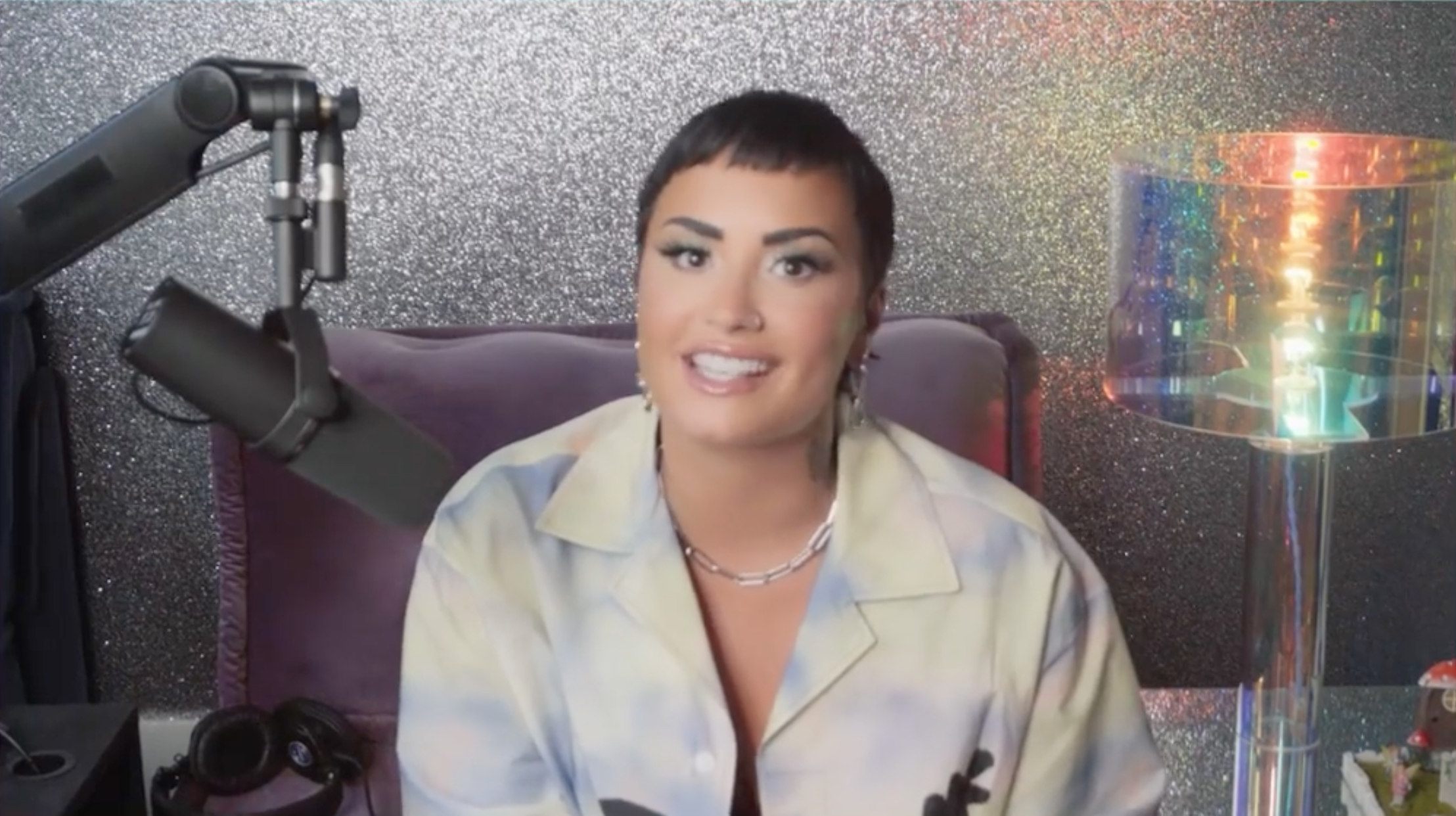Demi Lovato has some big news.
In a video shared to social media early Wednesday, the singer and former child star came out as non-binary and said they use they/them pronouns.
“Through the past year and a half, I’ve been doing some healing and self-reflective work. And through this healing I’ve had the revelation that I identify as non-binary,” they said.
“I feel that this best represents the fluidity that I feel in my gender expression, and allows me to feel my most authentic and true to the person I both know I am and still am discovering.”
The announcement immediately places Lovato alongside the likes of Sam Smith as one of the most high-profile non-binary people in the world (Smith came out as non-binary in 2019).
Lovato acknowledged that they are still “learning,” but said they’re hoping to engage in a dialogue about what it means to be non-binary and how they came to this conclusion. The video they posted also served to launch their new podcast, 4D With Demi Lovato, where they say they will explore ideas around identity, creativity and activism with various guests.
In the first episode, which also dropped Wednesday, guest Alok Vaid-Menon congratulated Lovato on coming out.
“I’m so proud of you,” the non-binary author and activist said.
Why Demi Lovato coming out as non-binary is a big deal
Lovato starred in Barney and Friends from 2002 to 2004, and had their breakout appearance as Mitchie Torres in the Camp Rock films, alongside the Jonas Brothers. From there they starred in the Disney Channel series Sonny with a Chance, and memorably appeared on several seasons of Glee as the girlfriend of Naya Rivera’s character Santana Lopez.
Lovato has also made waves in pop music, selling over 24 million records in the U.S. alone—including the innnudendo-laden queer hit “Cool for the Summer.”
In 2018, they were hospitalized following an overdose and have spoken publicly about being sexually assaulted as a teen.
They came out as pansexual and sexually fluid earlier this year, saying “I’ve always known I was hella queer, but I have fully embraced it.” At the time, they said they were “just too queer” to date men.
In the hours since Lovato’s non-binary coming out announcement, the revelation has resonated with queer young millenials who, maybe like me, had dozens of posters of Lovato plastered across their walls as teens, and are now finding themselves going through many of the same journeys with their identity and gender.
Fans were quick to share support on social media and acknowledge how big of a deal Lovato’s coming out is.
And while Lovato has had their fair share of problematic moments (like a recent spat with a Los Angeles frozen yogurt shop), fans were quick to say that’s no excuse to misgender them.
A personal journey
In the first episode of their podcast, Lovato said conversations with other non-binary artists like Sam Smith have helped them formulate and make sense of their identity.
“I was curious and asking questions,” they said.
They also said they felt pressure from fans and the wider world to be a “sexy feminine popstar” and to look a certain way. But coming to terms with their identity has helped them find peace.
“Now I realize it’s so much more important to live your truth than to ever suppress yourself,” they said.
“I feel that gender is just another boundary that separates humanity from divine wisdom.”


 Why you can trust Xtra
Why you can trust Xtra


